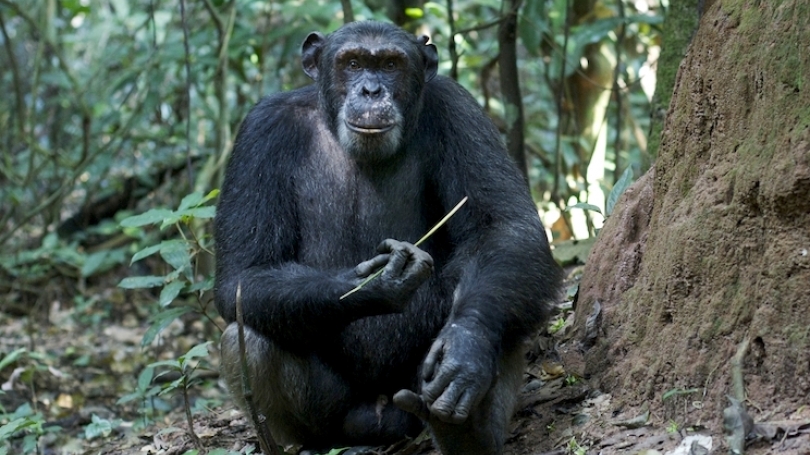
- About
- Undergraduate
- Graduate
- Foreign Study
- Research
- News & Events
- People
Back to Top Nav
Back to Top Nav
Back to Top Nav
Back to Top Nav
Back to Top Nav
The Fourth Talk of Dartmouth's Department of Anthropology Presents: Biological Anthropology—A Series in Five Parts.
Niche Construction by Chimpanzees and Gorillas in northern Congo: Implications for Maintenance of Material Culture
Examining the environment as a background condition for the vast degree of behavioral diversity observed within the clade of African apes has proven insufficient in explaining some of the most interesting and salient behavioral differences among our closest living relatives. We examine whether apes modify their environments in ways that systematically influence selection pressures acting on current populations and their descendants. We compared nesting, feeding, and habitat use among sympatric chimpanzees (Pan troglodytes troglodytes) and western lowland gorillas (Gorilla gorilla gorilla) in the Goualougo Triangle of northern Republic of Congo. This comparative approach provides a means of identifying the “ecological legacies” that each ape species bequests future generations and which may facilitate scaffolding of technological skill acquisition. Reconsidering the influence of environment and forces generating behavioral variation provides a fresh perspective on a long-standing debate about factors influencing the emergence and maintenance of material culture among apes.
Monday, May 16, 2016
03:30 PM - 05:30 PM Eastern Time (US & Canada)
Location: Carson L01
Crickette Sanz completed a B. A. and M.S. in Experimental Psychology at Central Washington University, and then an M. A. and Ph.D. in Biological Anthropology at Washington University in Saint Louis. She is currently an associate professor in the Department of Anthropology at Washington University in Saint Louis. She spent several years working at the Chimpanzee and Human Communication Institute at Central Washington University during her undergraduate career, and was a post-doctoral research fellow in the Primatology Department of the Max Planck Institute for Evolutionary Anthropology in Germany. Her current research focuses on primate behavioral ecology, ape cognition, and the evolution of sociality.
Dr. Sanz is co-PI of the Goualougo Triangle Ape Project in the Nouabalé-Ndoki National Park, Republic of Congo. In 1999, the project was initiated to increase our knowledge of the central subspecies of chimpanzee. The scope of the project was recently expanded to include a focus on the western lowland gorillas that coexist with chimpanzees throughout most of central Africa. Although northern Congo has long been considered a stronghold for ape conservation, great apes in this region are at risk of disease epidemics, commercial bushmeat hunting, and mechanized logging. The Goualougo Triangle Ape Project’s objectives involve long-term, site-based research and conservation activities which have the aim of effectively addressing the major threats to great apes in the Congo Basin.